(Please note: This piece mentions suicide.)
Pachelbel's Canon in D takes me right back to "Ordinary People," a film I lived in somehow in an alternate universe with Donald Sutherland, Mary Tyler Moore, and Timothy Hutton - and of course, Judd Hirsch.
For decades, Judd Hirsch was the closest thing I ever came to going to see a therapist.
Back when I was a teenager in the dark ages nobody I knew went to therapy. The people who “couldn't handle it" were the ones who went to therapy.
The ones who didn’t need therapy were the tough ones, the strong ones. We could handle it, any challenge tossed our way. It was not true in the least but we told ourselves we could handle things because the adults in our lives assured us of that.
You’re tougher than any kid I know.
You know how to get the job done.
Why would you pay good money to talk to someone? You can talk to me. Or a priest.
As I said, it was a really long time ago.
When the film, “Ordinary People” came out, I'd already lost my uncle, Michael Madden, who died by suicide when I was in high school, and he had just graduated from college. A Notre Dame graduate who majored in art and art history, Michael was only twenty-two when he left a note, drove his Gold Duster into the family garage, and closed the door on New Year’s Day 1979 in Washington DC.
I wrote all about him in my first novel OFFSIDES, renaming him “Peter” atoning for all the things I missed/never saw coming. I wrote about him in other pieces too. There was life before Michael and life after Michael, and it was never the same.
I was talking about suicide with my wise and wonderful friend, Beth Lapides, recently, and she said, “I get it, I do, things get hard, but the problem is, it’s the good ones who are leaving. We need the good ones to stick around.”
We need the good ones to stick around.
Michael was one of the good ones, but he didn’t stick around.
Neither did my Aunt Jeanne, who gave me books as a child, or my sweet cousin, Joe Pilkerton, both of whom left way too soon in tragic ways, leaving giant holes in so many lives.
After Michael's death, I had nobody to talk to - it was sad, yes, they told us, but in those days, it was always "move on” and “pray for his soul.”
I did write letters to Michael’s wonderful and funny Notre Dame and St. Mary’s friends, who were like big brothers and sisters all gathered for his funeral, all recent college graduates themselves, devastated and heartbroken, and I’ve stayed in touch with some of them all these years later.
They still miss him too. They’ve written and told me their memories of him and about his art studio beneath the old field house on the Notre Dame campus where he painted giant oils from black and white photographs. I have one of Michael’s paintings in our living room that made it across the country in one of the pods when we moved. Michael painted his neighbor from a black and white photograph, a former boxer and then a butcher, who lived up the street.
My grandmother sent me the painting when I was a young mother, and Kiffen hung it up in our house in Birmingham, its new home after hanging above the piano for decades in LA.
Back when "Ordinary People" came out, I heard it was a movie about a family who couldn’t talk to each other and kept secrets, so I knew the film was going to be important and that I needed to see it. My new college roommate Nicki, whom I did not know before we were assigned to room together, had lost her best friend, Vicki, six months before our freshman year. We bonded over our losses, living together in an ancient dorm, Dunford, on the University of Tennessee campus.
What a relief to meet someone else who was grieving, which meant we didn’t have to make small talk or pretend it was all okay.
Since neither of us had a car, we took a city bus from campus to West Knoxville to see the movie.
In the film “Ordinary People,” Timothy Hutton plays Conrad Jarrett, a boy whose older brother, Buck, dies in a drowning accident, and nobody in the family can talk about it or much of anything else. Robert Redford directed it from a novel by Judith Guest, which was astonishing to me then. I only knew Robert Redford from “Butch Cassidy and the Sundance Kid,” “The Sting” and “The Way We Were” - a movie my mother would not let me watch because it was rated PG.
[Aside Note: As a parent, I went too far the other way and let my children watch completely age-inappropriate movies, and one time while watching a depressing foreign film about an adult daughter dragging her alcoholic father home across a bleak European landscape, Lucy grabbed the remote off the table, stopped the film, and cried, “I’m nine! I’m nine!”
I snapped out of it and said, “Oh my God, you are nine, and I am sorry. I’m so sorry.” And we watched something else.]
Anyway, the day Nicki and I decided to go see “Ordinary People,” it was a sunny fall Saturday afternoon in Knoxville. Did we skip the practically mandatory UT Vols football game? More than likely it was an away-game weekend for I didn’t know then (after a lifetime of being a football coach’s daughter) that one was allowed not to watch football on Saturday and go to the movies instead.
So that Saturday, we broke tradition and watched “Ordinary People” and we were riveted, spellbound - on this journey with Conrad Jarrett (Timothy Hutton), two freshman girls, trying to find a way to cope in the world of grief and loss. We sat in the theatre long after the credits rolled, wrecked, crying in our seats.
In the movie, when Conrad calls Dr. Berger (Judd Hirsch) it was me calling Dr. Berger, trying to get an adult to listen. I was the one who went to Dr. Berger’s office, I was the one who quit the swim team, and Beth Jarrett (Mary Tyler Moore) was my mother who told me to put on a jacket but couldn’t talk about anything, and I sang in the choir too. Conrad Jarrett (Donald Sutherland) was my father who awkwardly checked on me to see how I was doing.
After the movie, Nicki and I took the city bus back to campus without speaking. In a way, watching “Ordinary People” was a sacred experience and we needed to be silent afterward thinking of our losses - of Michael and Vicki - what we couldn’t prevent, and yet we somehow still blamed ourselves.
Would Dr. Berger absolve us the way he helped Conrad Jarrett?
Maybe Michael wasn’t my fault? Maybe Vicki wasn’t Nicki’s fault? Maybe things just happened and it was nobody’s fault?
So I lived in that movie. It shaped me. When I watched “Downton Abby,” I knew Lady Crawley was Elizabeth McGovern but she was also that girl, Jeannine, who sang in the choir with Conrad and wore clogs, turtlenecks, and plaid skirts like me.
Maybe Nicki lived in the movie too. Nicki lost her best friend, Vicki, right before college. Nicki and Vicki. Who could make it up? Best friends from 3rd grade to 12th grade. I soaked it up as Nicki told me the stories of brilliant Vicki who had met Jane Fonda and Tom Hayden and went to California from Ohio to work at a social justice camp with them the summer before her senior year, and how one day Nicki and Vicki planned to move to California together. It was clear how smart Vicki was and how much good she would have done in the world. Vicki’s mother used to write Nicki short, wistful letters, the tie to her daughter, and Nicki always wrote her back.
But during the spring break of senior year, before I knew Nicki, Vicki drank a fifth of Jack Daniels at a Red Roof Inn in Dayton, Ohio, and died of alcohol poisoning. Vicki’s high school senior picture sat framed on Nicki's desk near a giant Rocky Horror poster, the soundtrack of Pat Benatar, Barbra Streisand, and Air Supply playing on her record player. On my side of the room, I hung a giant poster of Robert Redford, two large Kahil Gibran posters about friendship, and plenty of other things to cover up the sad green cement walls.
I thought about Vicki a lot in those days, a girl I never knew who would never go to college, and somehow I ended up living with her best friend. It wasn’t fair, and I couldn’t wrap my mind around how unfair it was.
Nicki never went to therapy either as a teenager.
Instead, we went to “Ordinary People” and tried to make sense of our lives.
My mother wasn’t an icy Mary Tyle Moore mom but being a coach’s wife raising four kids with a husband on the road a lot, she preferred humor over sentiment along with the dishwasher emptied, clothes folded, and rooms vacuumed.
She had a saying, “If you whine, you vacuum. Whiners vacuum.”
There wasn’t a lot of hugging, but she made us laugh with her sense of humor and the way our dog, Clancy, was truly our fifth sibling, and she spoke in his voice with such spot-on delivery.
Beth Jarrett (Mary Tyler Moore) did not allow dogs in her immaculate home.
I did have a father who tried to ask me how I was but mostly in the Irish way through my siblings. He would ask me, "How is your sister? How are your brothers?"
I remember always trying to give an adult answer about each sibling…
Duffy needs to get serious about…
Casey argues over…
Keely could consider…
Whatever I said…fill in the blank of a teenager trying to be an adult with her father. Mom never asked me how my siblings were doing. She asked us individually how we were doing because she wanted to know as much as she wanted the answer to be fine.
Because what parent doesn’t want the answer to be fine?
But “Ordinary People” taught me so much. I knew I didn’t want to be like Mary Tyler Moore in a perfect house, holding the facade together. I vowed to hug and hold my kids and listen and love them like Donald Sutherland learned to do because - spoiler - he ends up going to therapy with Judd Hirsch too.
Sometimes, I play Pachelbel's Canon in D to go back to the time of "Ordinary People” to remember everything.
Sometimes, I think about Michael and how he should still be here. He missed everything, and the younger generations have no memories of him.
My uncle, Michael, and I were only five years apart, more like an older brother, and I never thought to ask about this age difference. We only learned at the funeral that Michael had been “adopted.” This was more confusing than ever. Adopted? He looked just like us.
My father (consumed by football and grief) told us Michael was adopted, but he was not interested in our questions or curious about the origins of his little brother, and we were told to "pray for Michael's soul.”
But later, Cousin Mary Margaret and her sister, Tricia, knew the answer because their grandmother was my grandfather's sister, so I knew what they told me was true.
Michael was my grandfather's biological son but not my grandmother's. My grandfather had an affair and brought the baby home to my grandmother for them to raise as their own. His brother, a doctor, helped. How did my grandmother endure? But somehow she did with an iron will and endless love.
It's a lot. Such a lot. How did they do it? How was it arranged? Where is Michael’s biological mother and who was she? Did she ever try to find Michael? There is no one to ask anymore except to speculate with Tricia and Mary Margaret every few years.
I did eventually tell my father about Michael, and he only sighed and said, “Makes a lot of sense.”
But back then there was also the practical matter of Michael’s car, the Gold Duster, the car where he ended his life.
It seems inconceivable now, but it was decided that as the oldest grandchild and the only one with a license, I should get Michael’s car. I didn’t want it, but that wasn’t an option. Dad drove the car from DC to Knoxville and handed me the keys. It was still filled with Michael’s notes and Steely Dan and Crosby, Stills & Nash 8 Track tapes. I drove it around the first night on the back roads of Knoxville with the windows down, feeling his presence in the car but also a deep, impenetrable silence.
I drove my youngest siblings to school in that car because I was the oldest and dropped the two younger ones off at Sacred Heart while I drove on to Knoxville Catholic with my brother asleep in the back. Mom had a new teaching job at Webb, so it made sense for me to drive everyone because Webb was in the opposite direction. Dad didn’t drive anyone to school because he had to be at the football office at the crack of dawn.
***
When I was in New York this past fall, I saw Judd Hirsch at my friend’s wonderful play at the Actors Temple Theatre, Mad Women of the West by Sandra Tsing Loh. He was behind me in line getting tickets, but I didn’t see him until Kiffen pointed him out. I only took a terrible picture. I wanted to thank him, but it was too weird to approach Judd Hirsch and say, “Thank you for being my therapist in ‘Ordinary People’ a million years ago. You helped me. Thank you.”
This past December when I was home with my mother, Vicki’s picture was propped on the bookshelf. What? It had fallen out of an album.
I said, “What’s this photo doing out?”
Mom said, “Who is that? I wanted to ask you.”
“Her name is Vicki. She was Nicki’s best friend from childhood.”
“Why do we have it?”
I said I must have gotten one from Nicki years ago and it somehow fell out of the album. All the old albums were showing their age with pictures slipping out.
Vicki Hook 1962-1980
We need the good ones to stick around.
Somewhere there is a picture of Nicki and me inside our dorm room, but I can’t find it. I did find this one outside the dorm, freshman year. We were so close that year, we even began dressing alike. We’ve stayed friends forever. Nicki became my son Flannery’s godmother, and she spent decades making sure all three kids received birthday presents, Christmas presents, Easter presents, Halloween candy, and even that awful purple “Gak” slime from Nickelodeon they loved throwing at one another.
Finally, one of Michael’s college friends wrote me last summer for the first time. His name is Warren. He’s never forgotten Michael either. Here is a little part of his letter.
Kerry:
…When we were leaving ND in May 1978, and emptying our rooms, Michael gave me a painting of his cowboy hat. I often told him that I didn’t know how he painted or how anyone did that … and without asking, the reddish orange, yellowish study was mine … he gave it freely, not in a cavalier manner, with a simple “It’s yours, you take it”. The hat hung in my bedroom, without a frame, above my bed in my childhood home until my Mom moved out and tossed it when she was clearing the furnishings. When I saw the hat carved on the gravestone, I really got sorry the painting exists only in my mind … and now, I’m even more sorry I don’t have the painting to share with you.
Kerry … your photo on the UAB website has the family features of Michael … and so, to me, it was heartening to see you there where I could absorb the happy resemblance.
This is really a “thank you” note, I think … for sharing your story with us all and for sharing the part Michael plays in that story.
Very best wishes to you,
I was so glad to get that letter from Warren. I sent him more pictures and stories of Michael. I imagined him and Michael as young college students at Notre Dame.
We need the good ones to stick around.
That’s what I tried to tell my children growing up. That’s still what I tell them.
We need you in the world. I need you in the world.
That’s what I try to tell my students who’ve experienced unimaginable losses too. I also try to help them get therapy and find someone to listen to them. I also tell them to write their stories. They get to write their stories. The world needs their stories.
I also give them Anne Lamott’s advice.
“You own everything that happened to you. Tell your stories. If people wanted you to write warmly about them, they should've behaved better.”
Sometimes, I even tell them to watch “Ordinary People.”
Postscript:
While writing this, I found a wonderful 2016 piece by Sara Vilkomerson about the making of Ordinary People called “The Untold Story of Ordinary People.”

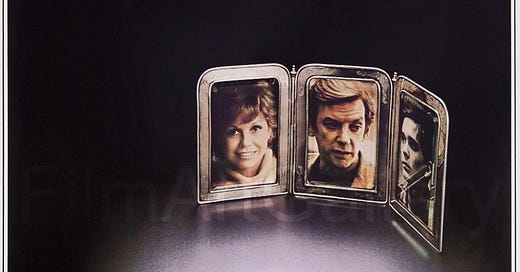



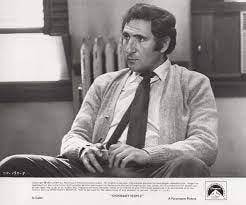
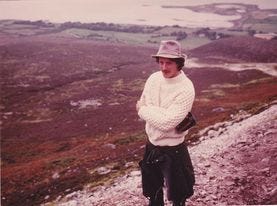
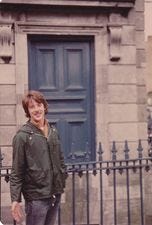


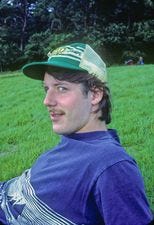
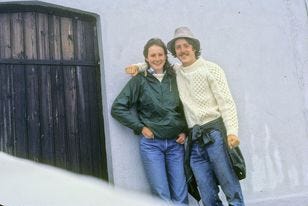
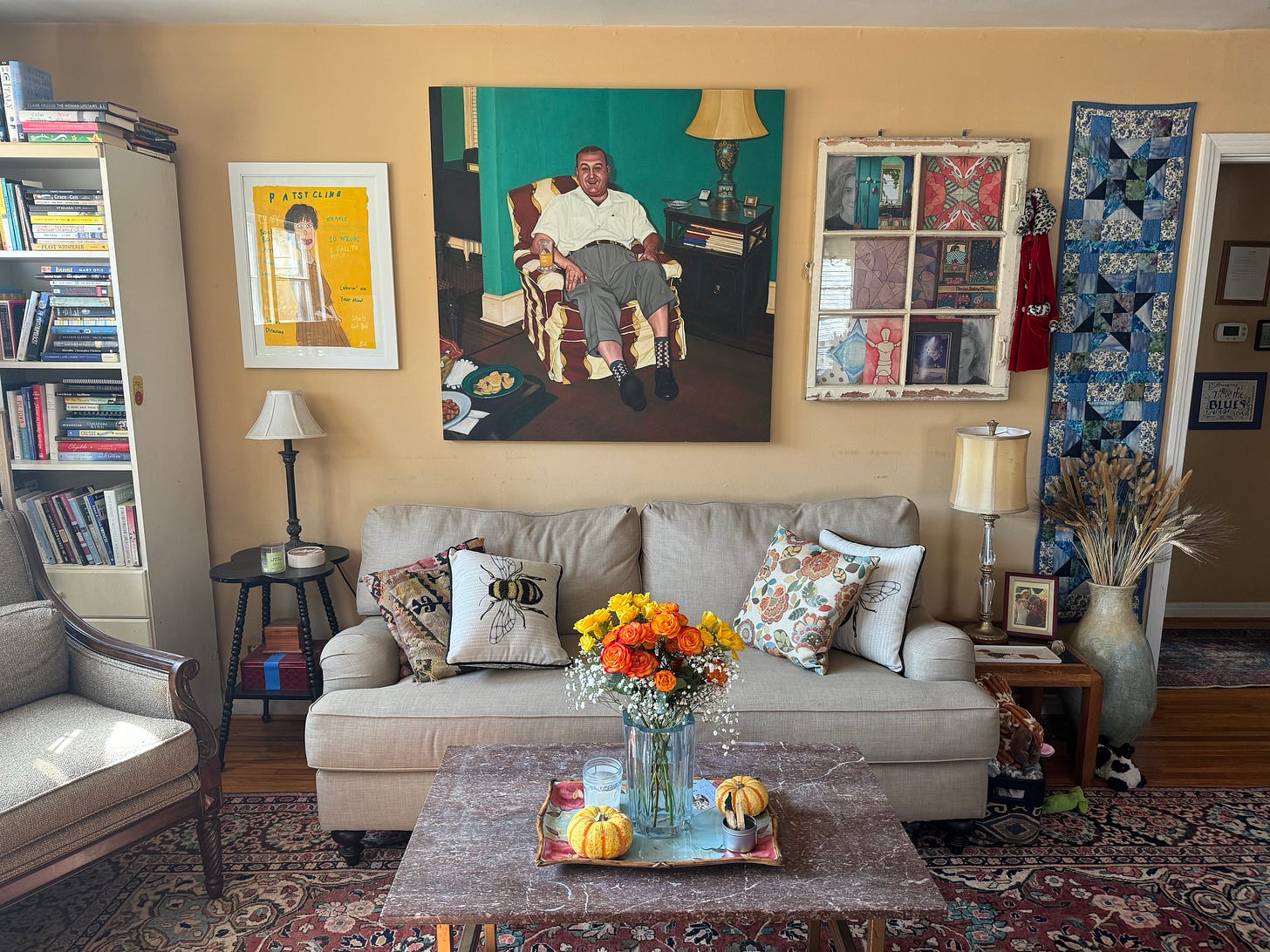
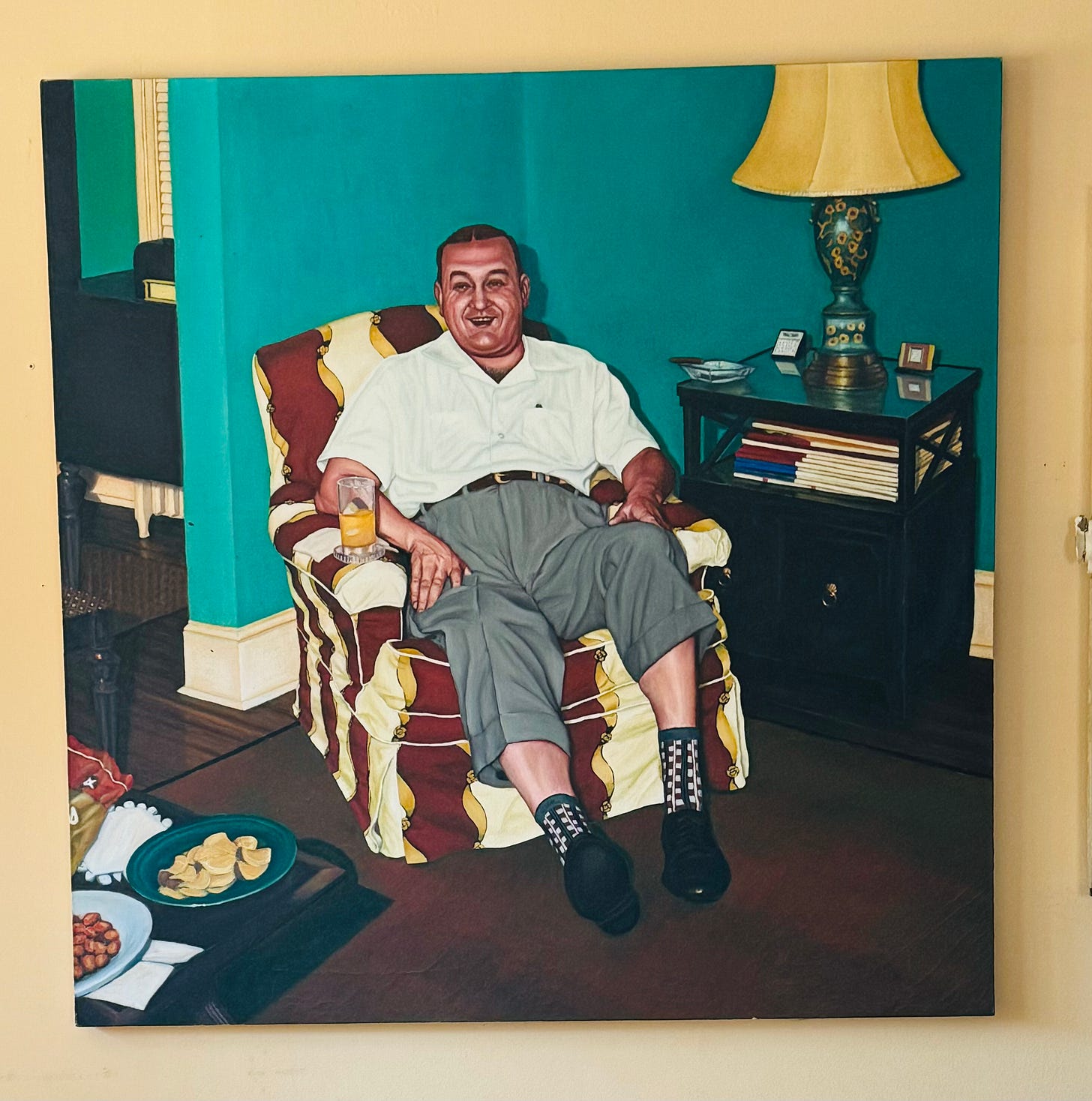


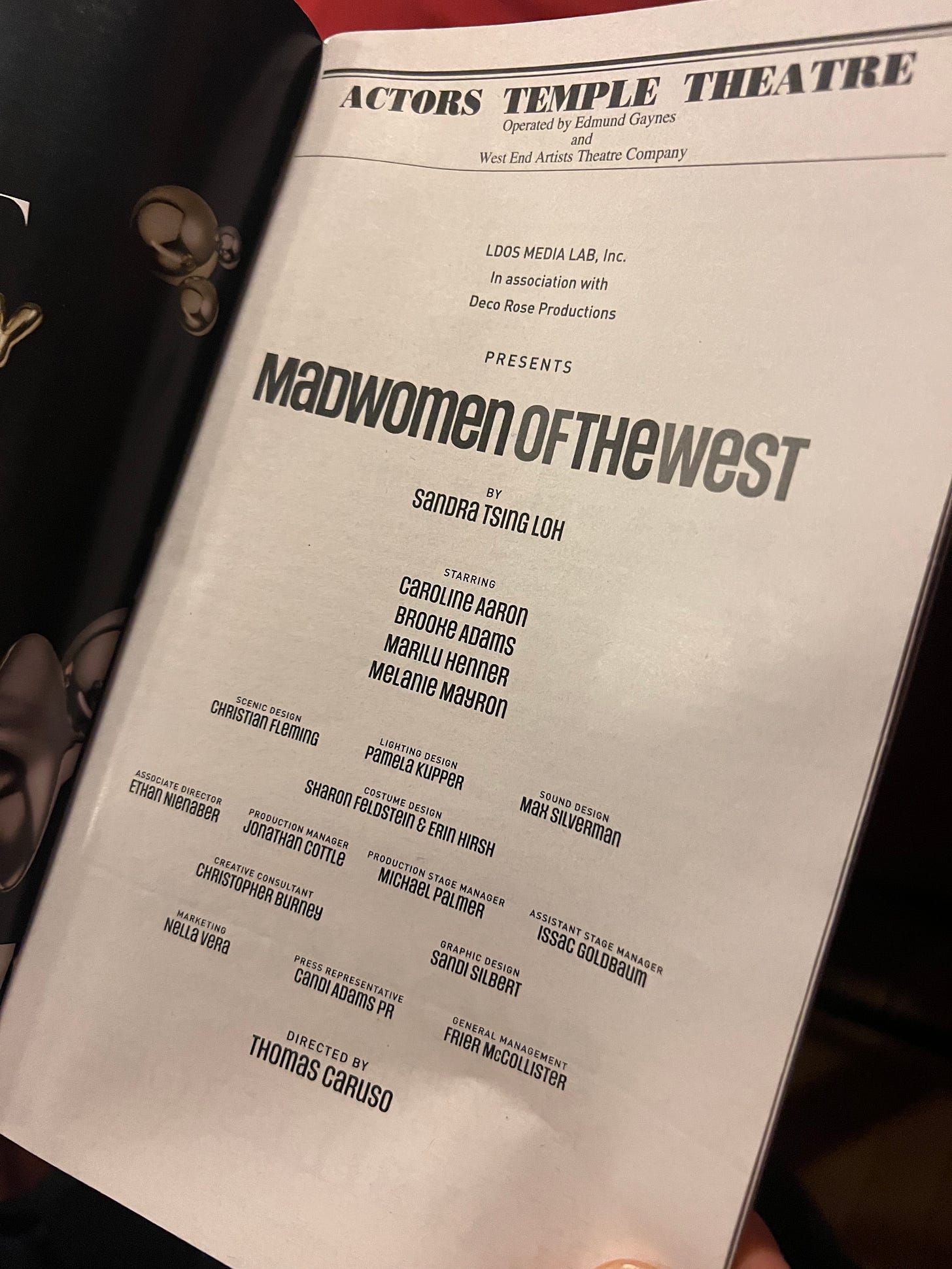
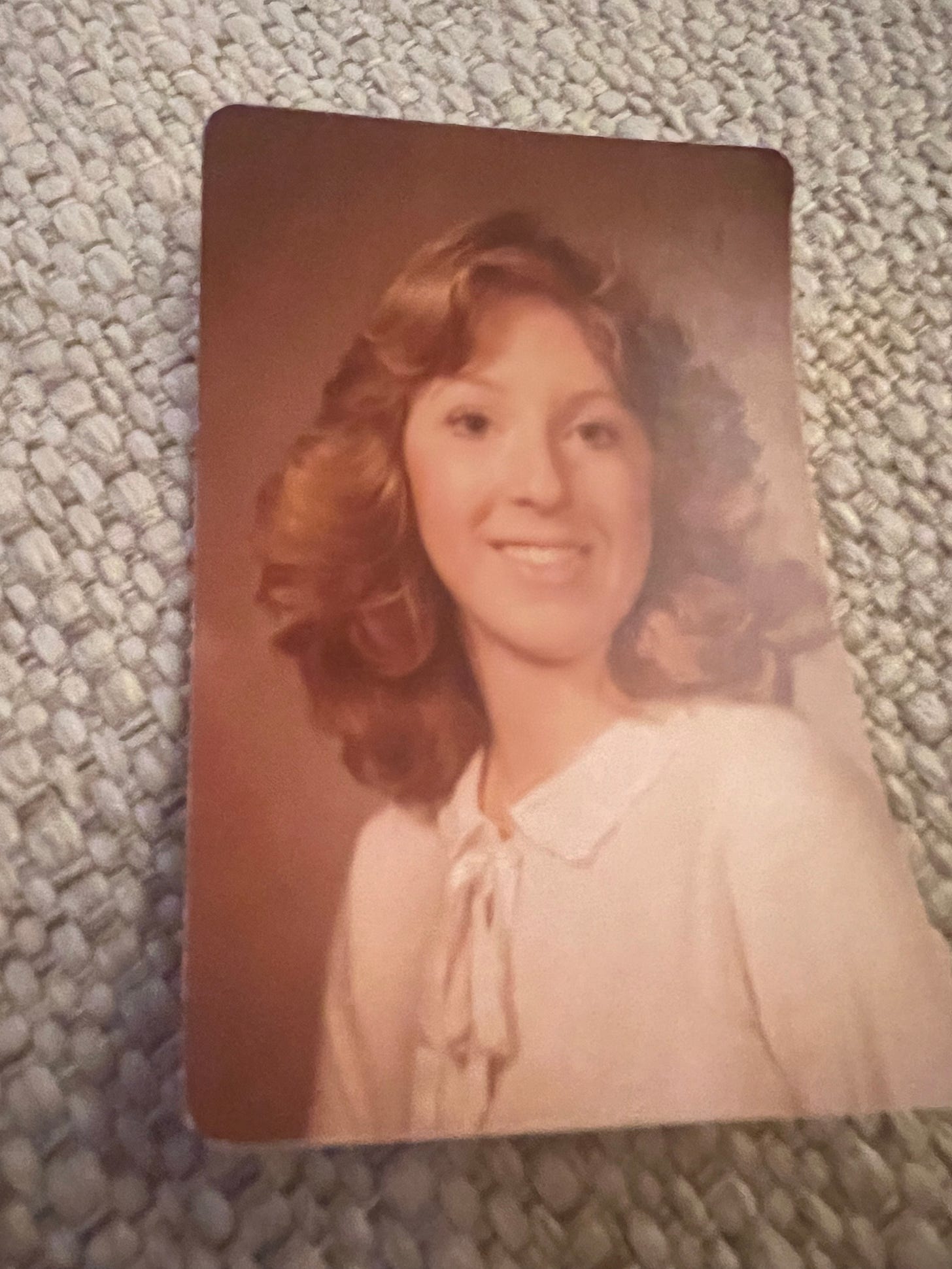
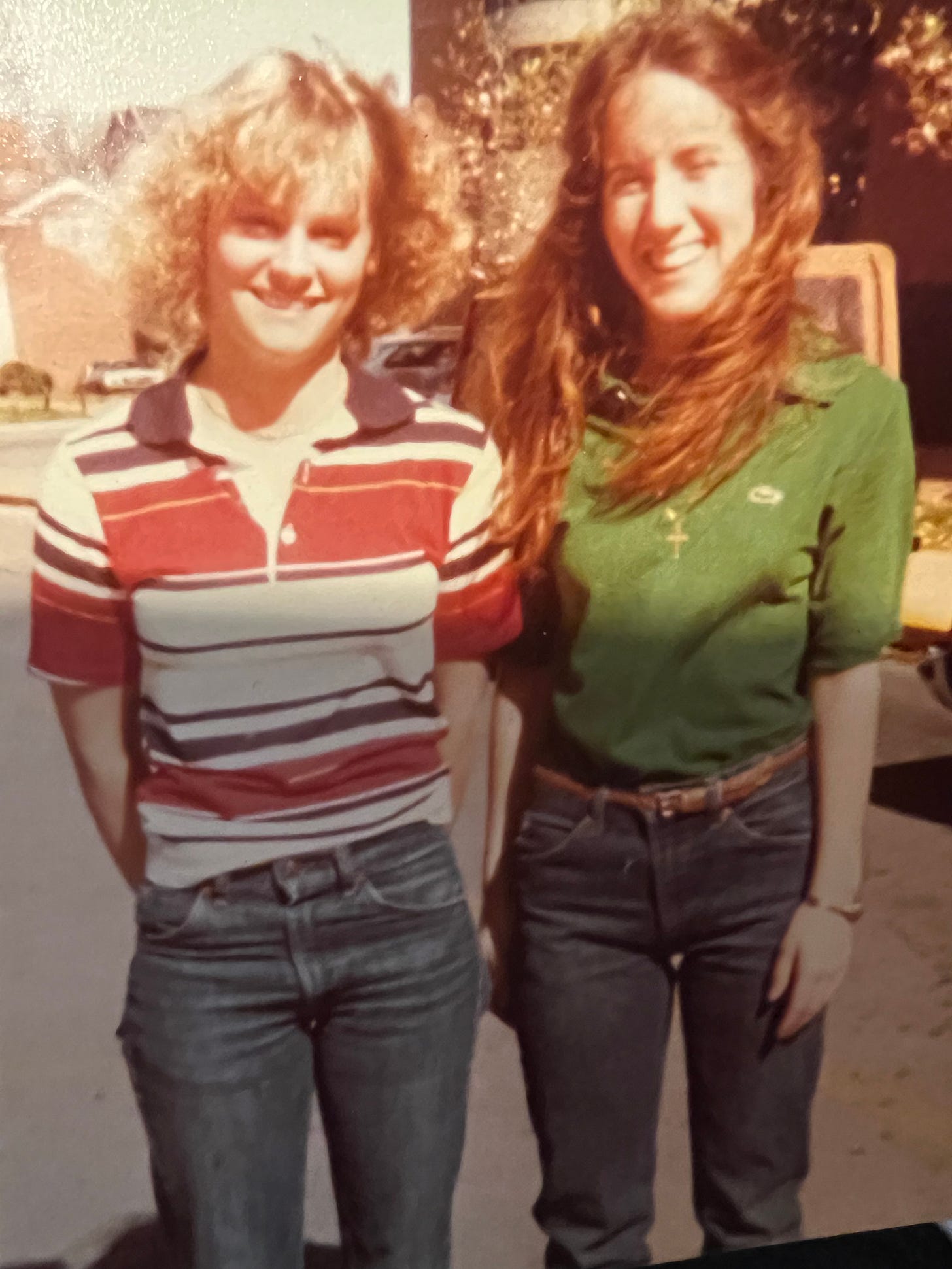

so many feels. Each time I read about Michael it tears at my heart. I was a high school junior when I first saw Ordinary People. I was also surprised that Robert Redford directed it. It was the first time I saw Mary Tyler Moore in a dramatic role and she kicked my ass. And Timothy Hutton? 16 year old Bob was smitten and he broke my heart. Not only was Judd HIrsch my therapist, too, Robin Williams in Good Will Hunting also was my therapist. I know why you didn't approach Judd Hirsch (I was too nervous to approach Jennifer Anniston when she sat in front of me at The Glass Menagerie), but I do hope you write him and let him know. I have sent charming letters to actors, as well as authors, and invariably hear back. There is a song in the "camp hymnal" at church set to the tune of the Canon in D. Every time we sang it, I was transported back to the Gateway Theater, and Ordinary People. Thank you so much for writing this. I so wish I could have known Michael. xoxo
Thank you for this, Kerry. I remember that wonderful portrait! I just wanted to share that Ordinary People was far and away my mother's favorite movie. The fact that it moved her profoundly made me realize how deeply she felt about her complicated relationship with her mother. I loved my grandmother - she even inspired one of my books. But I know that even though my mom talked to her over the phone every single day (except for their annual big blowup where they didn't talk for a week or two) she had deep issues. We never pulled away from the curb after visiting without my mom venting to my understanding father, about whatever had gone on.
Grandma moved in with my parents in old age (she lived to be 92) and my mother took excellent care of her. I'll never really know deep down why Ordinary People affected her so deeply - to her very core - but she was grateful for it. Thank you for sharing your stories of Vicki, NIcki and especially Michael.
By the way, Judd would no doubt have been happy to hear from you.